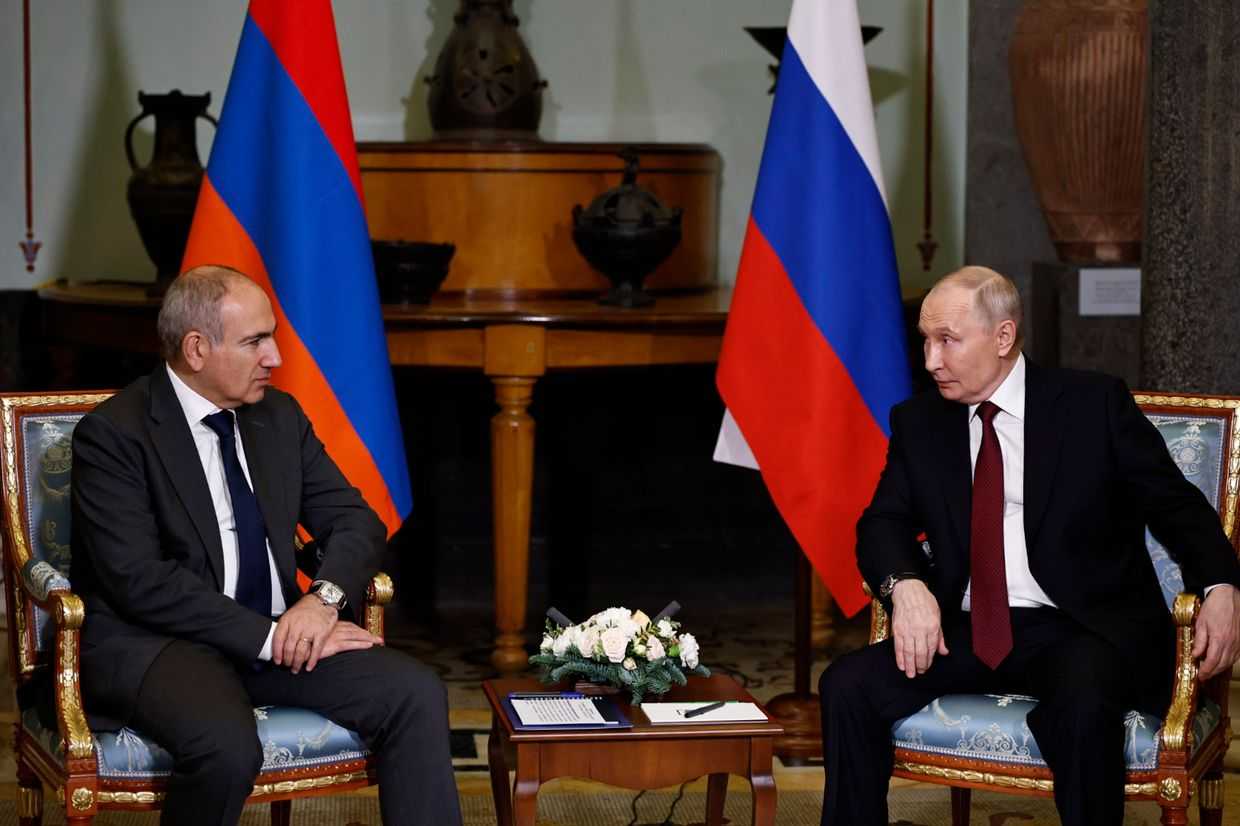
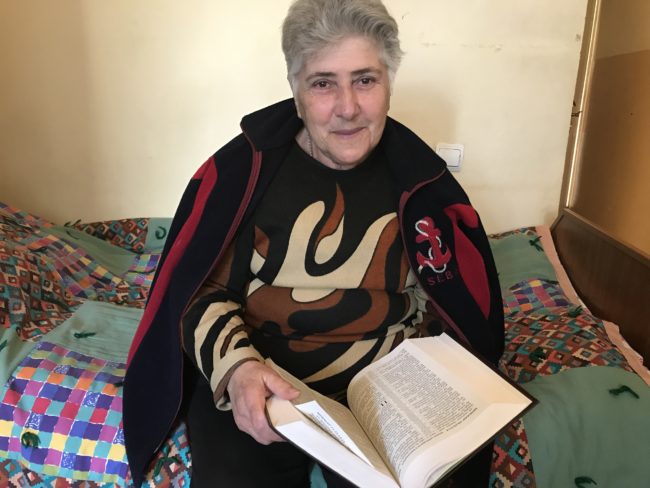
 Armenian identity is so tightly interwoven with religion that it can often be heard that the only true Armenian is a follower of the Armenian Church. Contempt, discrimination, and outright hatred towards religious minorities have led to a worryingly widespread perception of them as outsiders — a threat to Armenian statehood.
Armenian identity is so tightly interwoven with religion that it can often be heard that the only true Armenian is a follower of the Armenian Church. Contempt, discrimination, and outright hatred towards religious minorities have led to a worryingly widespread perception of them as outsiders — a threat to Armenian statehood.
Deadly discrimination
Anna (not her real name), 45, comes from Gyumri. She used to work as an Armenian language teacher in a local school, but was forced to leave after the school authorities discovered that she was a Pentecostal Christian.
‘I would never have thought that simply attending meetings of my religious organisation in my free time could be a reason for being fired from work. I was a teacher for ten years and my colleagues described me as a loved and respected professional. One day, I was invited to the principal’s office where he asked me to hand in my notice, because many parents had complained that a “sectarian” was teaching their children’, Anna told OC Media.
Anna recalls that she initially tried to fight for her rights, but eventually got frustrated and left the school voluntarily four years ago.
‘I left voluntarily, hoping I would find another job. The whole year turned out to be full of suffering. All the schools I approached slammed their doors in my face, because I was considered a “heretic”. If not for my brothers and sisters in faith, I would have starved to death’, Anna said.
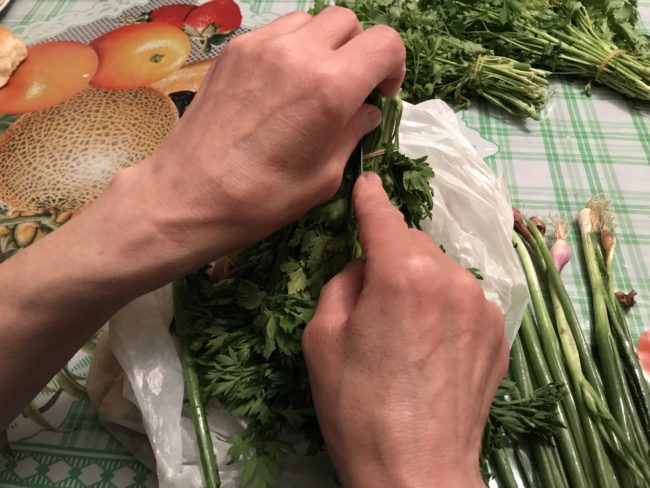
Despite always being able to count on moral support from her religious community, one day she attempted to end her life, tired of the almost universal scorn.
‘I drank bleach in order to die, but Jesus saved me — thank the Lord. I am grateful to him that I now have my little shop, which makes me feel human again’, Anna said.
Anna is now earning her daily bread with trade, selling fresh produce.
‘I’m happy I’m able to help people in need. Each morning I distribute fresh and healthy produce to people in need. We must all cleanse our souls and share what we have with our neighbours’, Anna said.
Although there are no official statistics to back it up, there is anecdotal evidence that Anna’s suicide attempt because of religious discrimination is far from unique in Armenia.
Religious mosaic

According to official data, there are 66 registered organisations carrying out religious activities in Armenia.
According to the 2011 census, the Armenian Apostolic Church is the biggest religious domination in the country, followed by 93% of its 3 million inhabitants. Other Christian denominations make up 2.1% of the population, including Catholics, Evangelicals, Pentecostals and Jehovah’s Witnesses.
The government considers these to be official religious organisations, although there are also several groups that only have the status of NGO, such as the Maharishi Transcendental Meditation Community or the Unification Church. Unregistered communities include Buddhists and the Hare Krishna community.
The Armenian Constitution guarantees freedom of conscience and religious belief to every citizen. In theory, the rights of religious minorities are protected, yet in practice, the picture is rather different.
The US State Department pointed out in their 2015 International Religious Freedom Report that religious minorities in Armenia are often subjected to various forms of abuse — obstacles in obtaining building permits for places of worship, and discrimination in education, the military, law enforcement, and public sector employment.
The report also points out preferential government support for the Armenian Apostolic Church and negative media reports often referring to religious minorities in a derogatory manner as ‘cults’ or even as ‘enemies of the state’. It also pointed to instances of verbal and physical harassment of Jehovah’s Witnesses while proselytising.
A family torn apart by religious intolerance
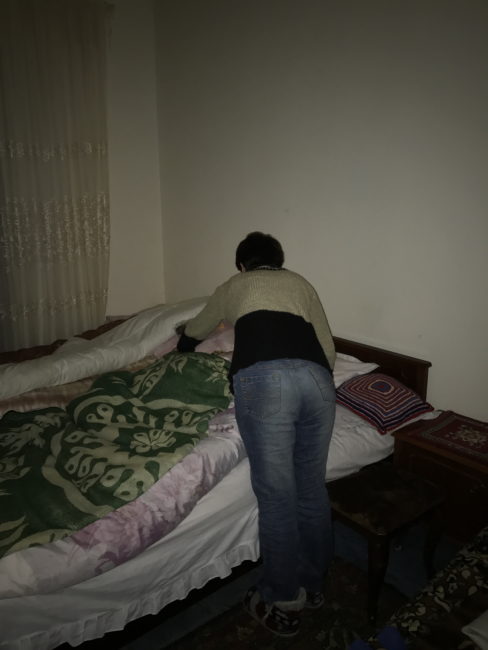
‘My family happiness lasted for only two years’, Kristine (not her real name), 35, recalls with sadness. She is currently taking care of her 5-year-old son alone.
Kristine comes from the city of Vanadzor, in northern Armenia’s Lori Province. Six years ago she got married and moved with her husband to Yerevan. The first months were happy for the newlyweds, especially when they found out that they were to become parents.
‘When my child fell ill, I suffered a lot. At the hospital I met Jehovah’s Witnesses, who provided me with a lot of moral support. Over time, I began to read their books and I realised that I was living my life incorrectly, and that I needed different religious nourishment’, Kristine told OC Media.
After she decided to join the Jehovah’s Witnesses, her life changed.
When Kristine’s in-laws found out that she had embraced a new faith, they first tried to convince her to abandon it. Later, they stopped visiting her family home.
‘My parents-in-law forbade my husband from communicating with me. I struggled for half a year. I loved him, but I couldn’t lie to myself; I had to go my own way’, Kristine recalls.
In the end, her husband’s relatives won over her husband. The separation process was painful, with her husband’s family trying to deprive her of her parental rights. After a long legal battle, the court decided that Kristine’s child should stay under her custody.
‘Now my son is with me and I am happy. He is often ill, but we are strong together. It’s definitely going to be fine. My husband doesn’t even remember us; he has a new family. I live with my parents. They are followers of the [Armenian Apostolic] Church, but they don’t mind and we respect each other’, Kristine said.
Kristine managed to find a job as a saleswoman at a private company, but she’s still struggling to provide for her and her son.
‘His father bought him a bicycle for his fourth birthday. I never saw him after that. He told me that we could be back together if I started living as a “normal” person, otherwise there was no place for me to grow old by his side’, Kristine said, smiling.
Faith can get you arrested
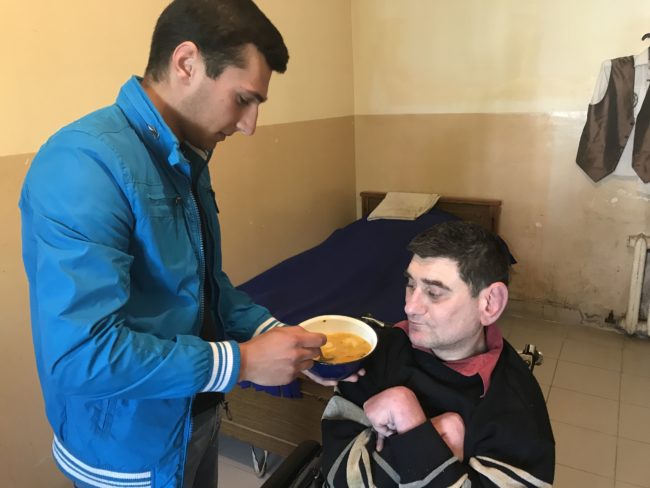
According to data provided by the Jehovah’s Witnesses to OC Media, since 1991, 19 members of the group have been arrested on charges of evading military or alternative civilian service, and sentenced to between one and one-and-a-half years in prison.
After Armenia declared independence from the Soviet Union in 1990, members of various religious communities — especially Jehovah’s Witnesses — refused to undergo military service, for which they often ended up in prison. In 2001, a condition was set for Armenia to adopt a law on alternative civilian service before the country could become a member of the Council of Europe. A relevant bill was finally passed on 17 December 2013.
According to the current Law on Alternative Service, one can join the armed forces without being obligated to carry or use a weapon for 36 months, or to undergo an alternative civilian service for 42 months. The usual length of military service is 24 months.
After 2015, many Jehovah’s Witnesses and Molokan Christians who were undertaking civilian service realised that they were still under the supervision of the Ministry of Defence, and refused to continue. Several dozen were convicted on charges of desertion and sentenced to between three and eight months in prison. Their cases eventually reached the European Court of Human Rights, who ruled against Armenia, forcing them to change the law to provide a truly civilian option.
Edgar Soghomonyan, 18, is a Jehovah’s Witness. he has already spent 4 months of alternative civilian service working in an elderly care home. His duties include feeding and taking care of people with disabilities. Edgar says that he is loved by all and he is content with his work.
‘I work six days a week, from nine to six. On Sundays, I’m free. The only difficulty is that the people I’m taking care of are heavy and difficult to move’, Edgar told OC Media, adding that he made the right choice because the Bible forbids him from carrying weapons.
Jehovah’s Witnesses under the shadow of Russia
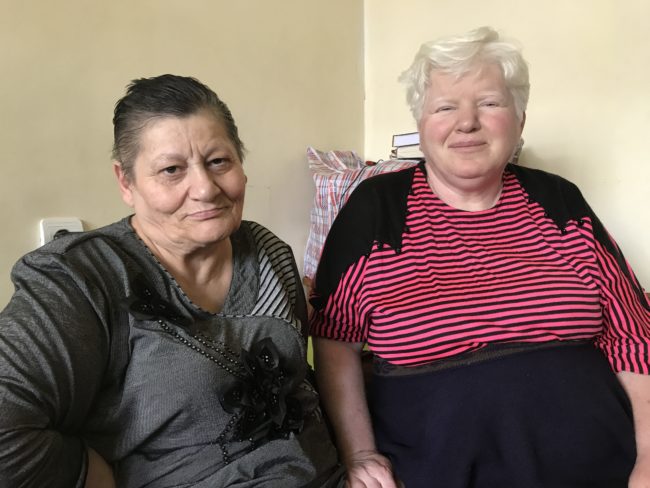
Rima Grigoryan, who has lived in a nursing home for two years, has been a member of the Jehovah’s Witnesses for three years. She hasn’t encountered problems, but other members of her congregation often complain of discrimination.
When members of her community approach pedestrians or knock on people’s doors and offer booklets, they are often treated with contempt. There were cases where the posters they were holding in the streets were vandalised by passers-by. Rima says that she can’t understand such treatment, because they only preach what’s good.
There are also other religious minorities in the nursing home. The Pentecostals are especially numerous.
Pentecostals Alvard Galstyan and Adrine Muradyan have been roommates since 1988. Over the years they have grown to be close friends and religious sisters. They are happy with their lives, although they remain isolated from society at large.
‘No-one persuaded us to believe or become members of their religious group, nor do we try to convince anyone. Our teaching is founded on love. We want to live in peace’, Alvard told OC Media, adding that Armenians lacked a little bit of kindness by judging people for their religion and not for the people they are.
Alvard and Adrine are worried by the Armenian reactions to the April 2017 ban on the Jehovah’s Witnesses in Russia’s Supreme Court, under its ‘anti-extremism’ law. They say that the news has intensified hatred towards religious minorities, with many Armenians openly calling for their own government to follow suit.





